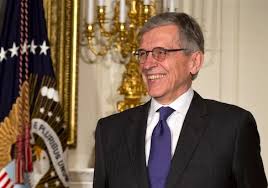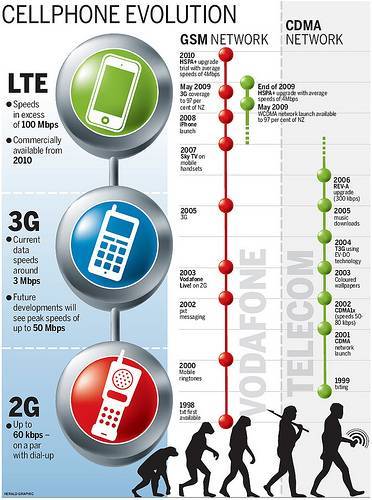Stephen Lendman May 2 2013
 Obama’s expected to pick Tom Wheeler as new Federal Communications Commission (FCC) chairman. More on him below.
Obama’s expected to pick Tom Wheeler as new Federal Communications Commission (FCC) chairman. More on him below.
In March, former FCC chairman Julius Genachowski stepped down. At the time, Free Press.net president Craig Aaron said the following:
“When Julius Genachowski took office, there were high hopes that he would use his powerful position to promote the public interest.”
“But instead of acting as the people’s champion, he’s catered to corporate interests. His tenure has been marked by wavering and caving rather than the strong leadership so needed at this crucial agency.”
“Though President Obama promised his FCC chairman would not continue the Bush administration’s failed media ownership policies, Genachowski offered the exact same broken ideas that Bush’s two chairmen pushed.”
“He never faced the public and ignored the overwhelming opposition to his plans.”
“Genachowski claimed broadband was his agency’s top priority, but he stood by as prices rose and competition dwindled.”
“He claimed to be a staunch defender of the open Internet, but his Net Neutrality policies are full of loopholes and offer no guarantee that the FCC will be able to protect consumers from corporate abuse in the future.”
“While there were a few bright moments during the Genachowski years – including the agency’s opposition to the AT&T/T-Mobile merger and the push for more online transparency from broadcasters – the chairman squandered many more opportunities at critical junctures.
“We urge President Obama to nominate a successor who will enact policies that foster real competition, protect diversity and amplify local voices.”
On March 27, Free Press.net headlined “Why the New Boss at the FCC Should Be Nothing Like the Old Boss,” saying:
Continue reading →


 Below is [May 26th’s] column in the Washington Post’s Outlook Section on the dangers of America’s growing administrative state. Ask any elementary student and you will hear how the Framers carefully designed a tripartite, or three-branch, system to govern the United States. This separation of powers was meant to protect citizens from tyranny by making every branch dependent on each other to carry out the functions of government. These three branches held together through a type of outward pressure – each holding the other in place through their countervailing forces. Add a fourth branch and the structure begins to collapse. That is precisely what is happening as federal agencies grow beyond the traditional controls and oversight of the legislative and executive branches. The question is how a tripartite system can function as a quadripartite system. The answer, as demonstrated by the last two decades, is not well. The shift from a tripartite to a quadripartite system is not the result of simply the growth in the size of the government. Rather, it is a concern with the degree of independence and autonomy in the fourth branch that led me to write this column.
Below is [May 26th’s] column in the Washington Post’s Outlook Section on the dangers of America’s growing administrative state. Ask any elementary student and you will hear how the Framers carefully designed a tripartite, or three-branch, system to govern the United States. This separation of powers was meant to protect citizens from tyranny by making every branch dependent on each other to carry out the functions of government. These three branches held together through a type of outward pressure – each holding the other in place through their countervailing forces. Add a fourth branch and the structure begins to collapse. That is precisely what is happening as federal agencies grow beyond the traditional controls and oversight of the legislative and executive branches. The question is how a tripartite system can function as a quadripartite system. The answer, as demonstrated by the last two decades, is not well. The shift from a tripartite to a quadripartite system is not the result of simply the growth in the size of the government. Rather, it is a concern with the degree of independence and autonomy in the fourth branch that led me to write this column.